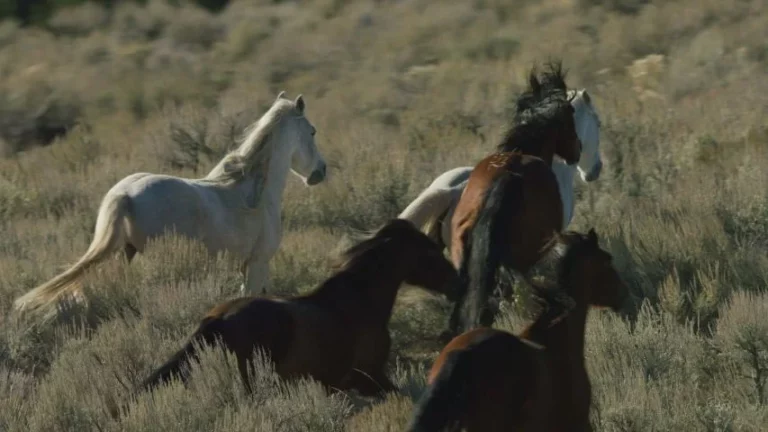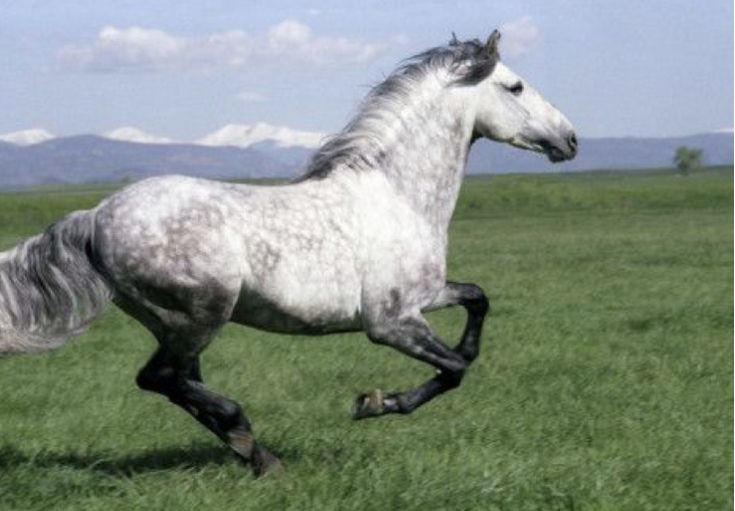Meaning of Epona
Epona is a goddess venerated by the Celts during the Iron Age across Gaul, Britain, and possibly other parts of Europe.
Her name, *Epona*, is believed to derive from the Celtic root word *epōn* or *epo-*. The exact meaning of this root is debated among scholars, with some suggesting it relates to “horse” or “mare,” while others connect it to concepts of fertility or protection.
Epona’s prominence in Celtic religious practice is evident from the numerous dedications and inscriptions found throughout her domain. These artifacts often depict her riding a horse and holding symbols associated with horses, such as reins or bridles.
The widespread veneration of Epona suggests that she was a significant deity whose influence extended beyond purely equestrian concerns. She may have been associated with fertility, abundance, childbirth, and the protection of both humans and animals.
Her name resonates through centuries, appearing in Roman Gaul where she was adopted into their pantheon, often depicted alongside *Hercules* or other deities.
The enduring popularity of Epona’s image and the continuing fascination with Celtic mythology attest to her enduring legacy as a powerful symbol of protection and fertility.
Epona was a Celtic goddess widely venerated across Gaul, encompassing modern-day France, Belgium, Switzerland, and parts of Germany and Italy.
Her name, believed to originate from the Celtic word “epōn,” meaning “horse” or “mare,” directly links her to equines. Epona wasn’t merely a horse goddess but embodied a complex array of associations linked to these powerful animals: fertility, abundance, protection, and even warfare.
Horses held immense significance in ancient Celtic society, serving as vital partners for transportation, agriculture, and warfare. Their speed, strength, and beauty made them symbols of power, freedom, and divine connection.
Epona’s dominion extended beyond the realm of horses; she was invoked for protection against various misfortunes, including disease, accidents, and even malicious spirits.
Evidence suggests that Epona’s worship spread throughout the Roman Empire alongside her Celtic followers. She gained popularity among both military and civilian populations, with numerous dedications found in Roman forts and private homes.
Roman depictions of Epona often feature her seated astride a horse, accompanied by other symbolic elements like cornucopias (horned vessels overflowing with bounty) and apples, further emphasizing themes of fertility and abundance.
Epona’s enduring appeal lies in her embodiment of qualities that resonated across cultures and time: the strength, freedom, and protective power associated with horses, along with the promise of good fortune and safety she offered her devotees.
Origin of the Name Epona
The name Epona has its roots deep in the pre-Roman Celtic world, specifically amongst the Gaulish tribes who inhabited what is now France, Belgium, and parts of Switzerland, Germany, and Italy.
While the exact meaning of “Epona” remains elusive, scholars generally agree that it likely derives from a Proto-Celtic root related to “horse” or “mare.”
Several theories exist regarding the specific interpretation. Some believe “Epona” could mean “she who tames horses” or “the mare,” highlighting her association with equines.
Others suggest connections to concepts like “earth mother,” “protector,” or even “fertility goddess,” given her often depicted connection to animals and nature.
The Gaulish language, from which Epona’s name likely originates, is poorly documented.
Reconstructions and comparisons with related Celtic languages provide clues but leave much open to interpretation.
The limited written sources from that period primarily come from Roman records, which offer glimpses into the veneration of Epona but lack extensive linguistic analysis.
Despite these challenges, the name “Epona” itself stands as a testament to her enduring presence in ancient Celtic culture.
The goddess’s widespread worship across Gaul and beyond speaks volumes about the importance of horses and their connection to fertility, prosperity, and even warfare in these societies.
Epona is a Gaulish goddess whose name has been preserved through numerous Roman inscriptions found across the Gallic regions, as well as in Britannia.
The exact origin of the name “Epona” remains uncertain. Some scholars propose etymological connections to Celtic words related to horses or fertility.
A prominent theory connects it to the Proto-Celtic root “*epōn-“, meaning “horse.” This connection is strengthened by Epona’s close association with horses throughout her iconography and in the roles she was invoked for.
The Roman inscriptions, spanning from the 1st century BC to the 3rd century AD, are a testament to Epona’s widespread worship across the Roman Empire’s Gallic provinces. These inscriptions provide valuable insights into her attributes, functions, and the people who venerated her.
Epona is consistently depicted as a mounted female figure, often accompanied by horses. She is frequently shown offering gifts or blessings to individuals or communities, suggesting roles in fertility, protection, and prosperity.
The inscriptions reveal that she was invoked for various purposes, including the health of animals, the success of journeys, and the safe delivery of children.
Epona’s popularity extended beyond the realm of Gaulish tribes. Her worship spread to Roman legions stationed in these regions, as evidenced by numerous inscriptions found on military equipment and barracks.
The widespread presence of Epona’s name and image in Roman inscriptions underscores her significant role in the religious landscape of the Gallic provinces, highlighting a syncretic blend of Roman and Celtic beliefs.
Historical Context and Depictions of Epona
Epona is a Celtic goddess whose worship spread throughout the Roman Empire during its later stages. While her origins remain somewhat shrouded in mystery, archaeological evidence and literary sources provide valuable insights into her significance and popularity.
The name “Epona” itself is thought to derive from the Gaulish word for “horse,” reflecting a key aspect of her domain. She was primarily associated with horses, equines, fertility, protection, and good fortune.
Her prominence within the Roman world began to rise during the first century CE, particularly in regions under Roman control where Celtic cultures persisted.
Historical context:
- Expanding Roman Empire: As Rome’s influence grew, it encountered and absorbed various cultural practices from conquered territories. This period of assimilation led to the integration of deities like Epona into the Roman pantheon.
- Military Importance of Horses: In a society heavily reliant on cavalry for warfare, horses held immense strategic value. It’s not surprising that a goddess associated with equine well-being and protection would gain favor among Roman soldiers and those involved in equestrian activities.
- Syncretism: Epona likely absorbed traits from other Roman goddesses, such as Fortuna (goddess of fortune) or the agricultural deities. This blending of religious figures was common during this period.
Regional Popularity:
- Gaul: Epona’s origins are believed to lie in Gaul, a region encompassing present-day France and parts of Belgium and Germany. Here, she was already an established figure before the Roman conquest.
- Roman Provinces: Her worship spread throughout the Roman Empire, particularly in areas with strong Celtic populations or where horses played a significant role in local economies (such as farming regions). Inscriptions dedicated to Epona have been found across Gaul, Britain, and parts of Italy.
Depictions:
- Commonly Depicted with Horses: Epona is frequently depicted in art alongside horses, sometimes accompanied by a child or riding a horse herself.
- Symbolic Attributes: She often carries symbols associated with her domain, including fruits, cornucopias (horn of plenty), and torches. The torch symbolizes guidance and protection.
While Epona’s worship eventually faded as Christianity became the dominant religion in the Roman world, her enduring legacy can be seen in archaeological finds and the continued interest in Celtic mythology.
Epona, a Celtic goddess associated with horses, fertility, and protection, has captivated scholars and enthusiasts alike for centuries. Her name, believed to be derived from the Gaulish word *epo-,* meaning “horse,” reflects her central connection to these magnificent creatures.
The historical context surrounding Epona is shrouded in mystery, as written sources about Celtic deities are scarce. Archaeological evidence and surviving artwork provide fragmented glimpses into her veneration.
- Gaulish Origins: Epona’s worship appears to have originated in Gaul (modern-day France), where she was a prominent deity among various tribes. Inscriptions from across the region, many featuring equestrian imagery, attest to her widespread popularity.
- Roman Influence: As the Roman Empire expanded into Gaul, Epona’s cult spread throughout its territories. She was adopted by Roman legions, who revered her as a protector on campaigns and during battles. The Romans even erected temples dedicated to Epona, further solidifying her status in their pantheon.
Artistic representations of Epona offer valuable insights into her attributes and significance.
- Goddess and Horsewoman: Epona is typically depicted as a beautiful woman, often wearing a tunic and adorned with jewelry. A defining characteristic is her association with horses, which she frequently rides astride or holds reins in her hands.
- Symbolism of the Horse: The horse held profound symbolic meaning for the Celts, representing strength, freedom, and speed. By linking Epona to this animal, artists emphasized her power and protective qualities.
The enduring legacy of Epona lies in her ability to transcend cultural boundaries. Her image continues to resonate with audiences today, inspiring artists, writers, and individuals seeking a connection to ancient Celtic traditions.
- Best Datanyze Alternatives for 2025 - April 26, 2025
- Best Coldlytics Alternatives for 2025 - April 25, 2025
- Best Brevo Alternatives for 2025 - April 25, 2025


